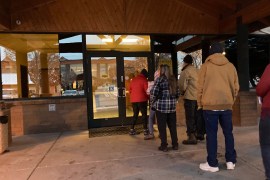Brazilian Model for Providing HIV/AIDS Drugs ‘Heralded,’ But May Not Work ‘Everywhere,’ NPR’s ‘Morning Edition’ Reports
NPR's "Morning Edition" today reports on WHO's selection of Brazil, a country whose approach to HIV/AIDS has "long been heralded" as a model for the developing world for its universal provision of free antiretroviral drugs, to assist in the development of the health agency's HIV/AIDS treatment strategy (Wilson, "Morning Edition," NPR, 6/5). Brazil's AIDS program director Paulo Teixeira in May announced that newly elected WHO Director-General Jong Wook Lee at the WHO annual assembly in Geneva asked him to assist in the development of the agency's five-year antiretroviral treatment strategy. Brazil negotiates discounted pricing for the drugs or, if unable to negotiate a satisfactory price, begins local production of generic copies of the drugs (Kaiser Daily HIV/AIDS Report, 5/21). Lee has said that he would fulfill WHO's promise to provide three million HIV-positive people in resource-poor countries with antiretroviral drugs by 2005 (Kaiser Daily HIV/AIDS Report, 5/23). NPR reports that "not everyone is convinced that Brazil's model can work everywhere" because the country has a per capita income "considerably more" than most developing countries, an HIV prevalence "much lower" than sub-Saharan Africa and a functioning health care system. The NPR segment includes comments from Dr. Anthony Fauci, head of NIH's National Institute of Allergy and Infectious Diseases; Dr.William Foege, a senior fellow at the Bill & Melinda Gates Foundation; and Teixeira ("Morning Edition," NPR, 6/5). The full segment is available online in RealPlayer.
This is part of the Morning Briefing, a summary of health policy coverage from major news organizations. Sign up for an email subscription.





